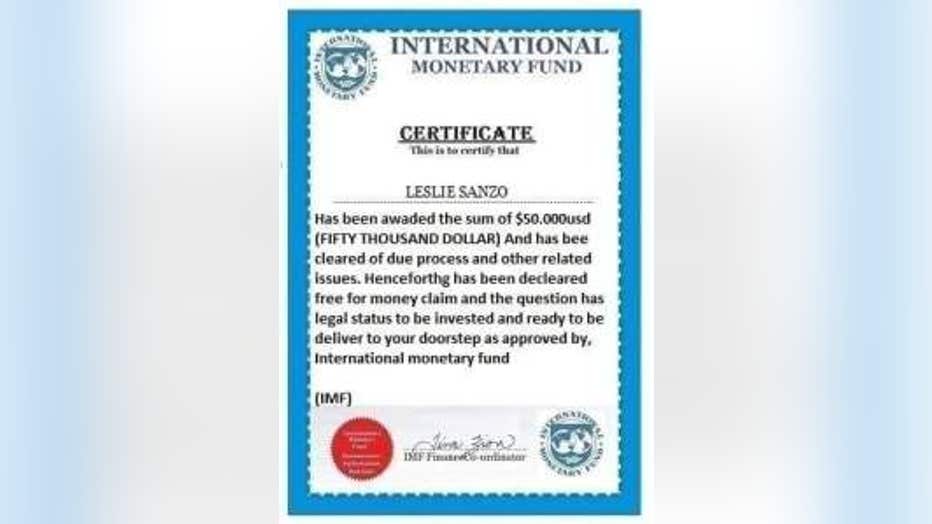Fraud among friends: How scammers are using Facebook to fool you
MILWAUKEE -- Log on to Facebook and there's one thing you are guaranteed to find: friends.
So chances are, you've had a conversation like the one Leslie Sanzo did.
"She sent me a message saying 'Hi how are you doing?' and I said I'm doing good how about you?" Sanzo said.
An innocent enough start to a chat with a close friend -- but it's one Sanzo won't soon forget.
Her Facebook friend then told her she's "doing good and just waiting for money."
Sanzo asked if she won the lottery.
"I got it from the IMF grant thing and did you hear of it?" her Facebook friend messaged back.
The offer seems too good to be true -- but you can trust your friends, right?
Leslie went to the link her friend gave her and was told she too qualified for some cash.
The memo read, "International Money Fund. This is to certify that Leslie Sanzo has been awarded the sum of $50,000 USD and has been cleared of due process and other related issues."
It was riddled with spelling errors.

The "certificate" sent to Leslie Sanzo, claiming she had won.
And it turns out -- Sanzo's Facebook friend had been hacked.
Sanzo later found out, scammers had been using her friend's profile.
A man named Scott Kimberly went back and forth with her about how much the "transportation fees" were going to cost.
They settled on Leslie paying $600.
She wired the money -- and then they told her they needed more because the truck had been pulled over by the IRS.
Sanzo started asking questions, and that's when more than her money disappeared.
"I kept checking his Facebook and his Facebook was still there and kept checking my messages," Sanzo said. "And all of a sudden his Facebook disappeared."
Christopher Miller with the IRS says it's a very clever scam.
He said he isn't surprised Sanzo was told the money truck was pulled over by an agent Richard Weber.
A simple internet search shows Weber is the chief of criminal investigations for the IRS.
"We have heard about scammers recently using the names of IRS officials or other government officials to make their hoax seem real," Miller said. "It's just one more way that they lure people in."
People like Sanzo, who wanted to believe she had money coming and was embarrassed when she phoned her friend.
"If I would've called her ahead of time, to find out she had been scammed and it wasn't her, we never would've did it," Sanzo said.
Sanzo paid the price, but she said she called Contact 6, so you won't make the same mistake.
Next time a "friend" sends you a strange message, you won't be caught in a conversation crime.

